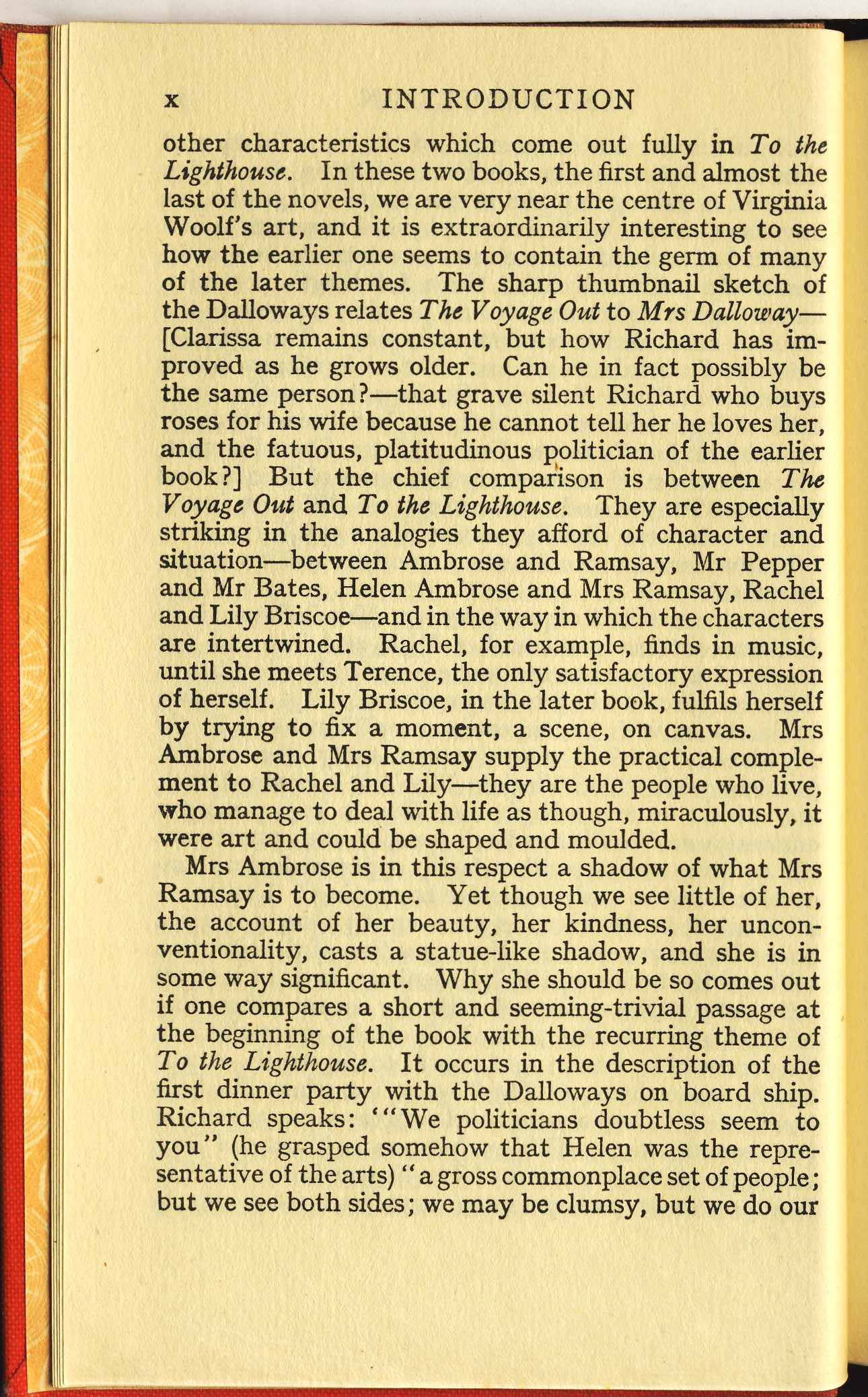
x INTRODUCTIONother characteristics which come out fully in To theLighthouse. In these two books, the first and almost thelast of the novels, we are very near the centre of VirginiaWoolf’s art, and it is extraordinarily interesting to seehow the earlier one seems to contain the germ of manyof the later themes. The sharp thumbnail sketch ofthe Dalloways relates The Voyage Out to Mrs Dalloway[Clarissa remains constant, but how Richard has im-proved as he grows older. Can he in fact possibly bethe same person?—that grave silent Richard who buysroses for his wife because he cannot tell her he loves her,and the fatuous, platitudinous politician of the earlierbook?] But the chief comparison is between TheVoyage Out and To the Lighthouse. They are especiallystriking in the analogies they afford of character andsituation—between Ambrose and Ramsay, Mr Pepperand Mr Bates, Helen Ambrose and Mrs Ramsay, Racheland Lily Briscoe—and in the way in which the charactersare intertwined. Rachel, for example, finds in music,until she meets Terence, the only satisfactory expressionof herself. Lily Briscoe, in the later book, fulfils herselfby trying to fix a moment, a scene, on canvas. MrsAmbrose and Mrs Ramsay supply the practical comple-ment to Rachel and Lily—they are the people who live,who manage to deal with life as though, miraculously, itwere art and could be shaped and moulded.
Mrs Ambrose is in this respect a shadow of what MrsRamsay is to become. Yet though we see little of her,the account of her beauty, her kindness, her uncon-ventionality, casts a statue-like shadow, and she is insome way signiicant. Why she should be so comes outif one compares a short and seeming-trivial passage atthe beginning of the book with the recurring theme ofTo the Lighthouse. It occurs in the description of thefirst dinner party with the Dalloways on board ship.Richard speaks: "'We politicians doubtless seem toyou" (he grasped somehow that Helen was the repre-sentative of the arts) "a gross commonplace set of people;but we see both sides; we may be clumsy, but we do our









